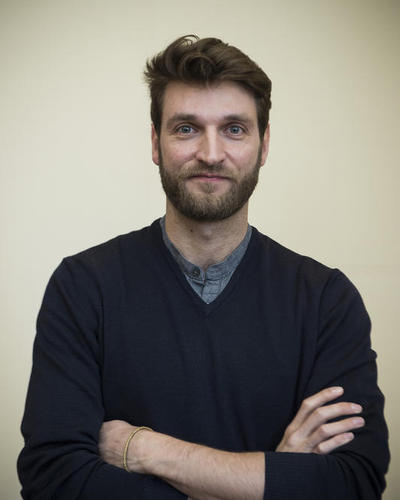Bringing Crises into Focus
«Is there a response pattern that cuts across different crises? We don’t really know,» UiB researcher Pierre-Georges Van Wolleghem says. Now he wants to study just that.

Main content
«If you think about it, it is fascinating that there are so many people, with different aspirations, with different beliefs and priorities. And somehow, we manage to understand each other and live in the same society,» researcher at Department of Comparative Politics, Pierre Van Wolleghem says.
He came to Bergen four years ago, when he obtained a position as a postdoctoral fellow on professor Hakan G. Sicakkan’s project about asylum policy.
«I was intrigued by this project, which evaluated the impact of The Global Compact on Refugees - the UN’s framework to protect refugee’s. It sounded very interesting and it was a good match with my previous work, on European Union policies for the integration of migrants. It also led me to reflect more thoroughly on how the 2015 Refugee crisis has affected the way Europeans look at migration-related issues and policies» Van Wolleghem says.
Wants to study crises
Van Wolleghem is originally from France. «But I’ve lived in Italy for 10 years, I’ve lived in the UK for about a year, and I have also lived in Spain, Poland and Canada. I think that has helped me understand how people differ from one place to another, but also how similar they are – especially in modern democracies,» he says.
The question he is interested in now is how crises affect the way democracies work. He is currently going through the selection process of the prestigious ERC Starting Grant; he has now gotten to the last round of interviews in this process.
Drastic measures
In times of crisis, there will always be a tension between speed and process, according to Van Wolleghem.
«The very definition of crisis implies a notion of urgency. In these situations, it is likely that policy-makers will find action more important than deliberation. Policy-makers are thus faced with a dilemma: should they react quickly and intensely to mitigate a situation, or should they abide by the principles of inclusive deliberation for their actions to be democratically founded—and perhaps accepted?» Van Wolleghem says.
We all remember the drastic measures that were implemented overnight in March 2020.
«A lot of countries decided to declare a state of emergency. Instead of going through the normal law-making process, governments would decide via decree because there was an understanding that this is what had to be done then,» Van Wolleghem says, and adds:
«This may be legitimate, but if these states of emergency last for too long, it can become problematic».
Working together
According to Van Wolleghem, the idea behind his project is pretty simple.
«If a crisis occurs, it will likely increase the importance that some issues have for the public. If some issues are more important for the public, they will likely become more important for political parties too, because they will have an incentive to compete on the issues connected to the crisis,» he explains.
Van Wolleghem does not only want to study the national level in the 27 EU countries, but also the mechanism at the EU level – when different countries have to work together, to find collective solutions.
«A government will have to enter into an agreement with other governments in the European Union, and find a way to engage in collective action. And that is going to be very difficult, because from public opinion to collective decision-making at the EU level, there are so many steps, and so many things can go wrong. I am interested in how this works,» Van Wolleghem says.
What are the common mechanisms?
Van Wolleghem thinks it is odd that this topic has not been studied more before.
«We are going to be faced with new crises. That’s inevitable. There have been lots of studies on single crises and policy measures. But existing knowledge is thin when it comes to comparing responses across crises. Is there a response pattern that cuts across different crises? We don’t really know; that’s the reason I want to look into this,» he says.
